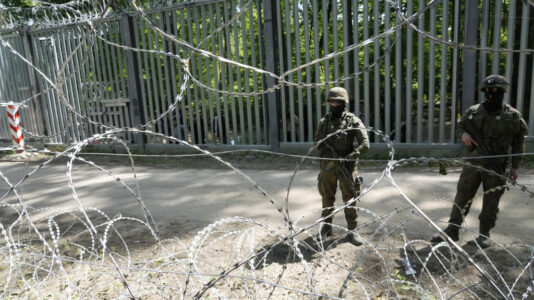The recent unsettling events in Poland, including the fire at a Warsaw market hall, are being linked to potential eastern influences by government officials. Along the Belarusian border, increasingly aggressive “migrants” have injured three Polish soldiers using makeshift weapons such as spears and nail-studded clubs. Additionally, the unprecedented “takeover” of the Polish Press Agency’s service to broadcast a toxic and false “dispatch” about supposed partial mobilization suggests significant infiltration of Poland’s critical infrastructure under the current administration.
This visible escalation raises serious concerns.
The hybrid war against Poland appears to be entering a new, more intense phase. In the most pessimistic scenario, these events may be precursors to direct, conventional conflict. The situation has been serious for some time, with consistent signals that the eastern threat continues its criminal activities.
Donald Tusk has echoed these concerns, highlighting the Russian threat, which he had previously downplayed. His policies, however, seem to weaken Poland rather than unify it against such an external threat.
By focusing public attention on pseudo-scandals and frivolous parliamentary inquiries through compliant media, Tusk diverts energy from crucial development and investment projects, thereby weakening Poland’s economic and military potential. He also invests considerable effort in pushing a divisive ideological agenda that many believe is damaging to society.
Tusk’s inability to mobilize Western support for Ukraine, or even attempt to, stands in stark contrast to the PiS government’s diplomatic efforts. The previous government pursued a robust, independent foreign policy, while the current administration seems aimless, consumed by its own vendettas.
As dark clouds gather over Poland, the nation is led by a government that, for the past six months, appears directionless and increasingly obsessed with retribution, requiring ever-greater doses to satiate this growing addiction. This paints a grim picture of a leadership that, even if it understands the situation, is neither mentally nor structurally capable of defending Poland.






